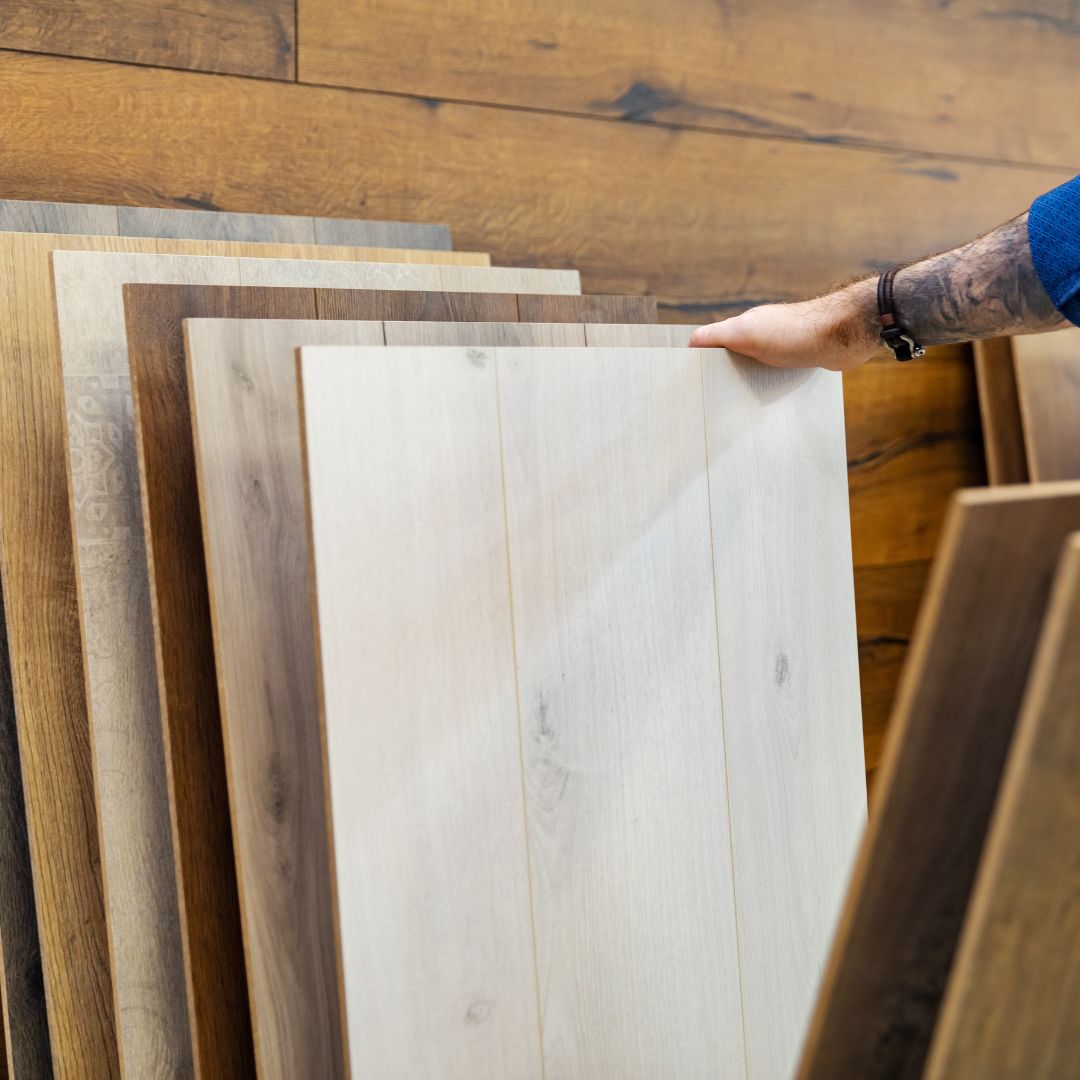
Waterproof Flooring: The Best Solutions for Kitchens and Bathrooms
Luxury Vinyl Flooring: Stylish and Waterproof
Luxury Vinyl Plank (LVP) and Luxury Vinyl Tile (LVT) are among the best waterproof flooring options for kitchens and bathrooms. These floors are made from multiple layers of PVC, making them highly resistant to water damage, scratches, and wear. They mimic the look of hardwood or stone but offer better durability and easy maintenance.
Vinyl flooring is comfortable underfoot and works well with radiant heating systems. Since it is 100% waterproof, spills, splashes, and humidity won’t cause warping or damage. Regular sweeping and occasional mopping with a mild cleaner keep it looking fresh.
Porcelain and Ceramic Tile: Timeless and Water-Resistant
Porcelain and ceramic tiles are classic choices for waterproof flooring in bathrooms and kitchens. Porcelain, in particular, is denser and more resistant to moisture, making it ideal for high-humidity areas. Available in various colors, textures, and patterns, tile flooring allows homeowners to achieve a stylish and custom look.
Properly installed tile flooring, with well-sealed grout, prevents water penetration. While tile can be cold underfoot, adding radiant heating or using bath mats can enhance comfort. Routine cleaning with mild detergents and grout sealing every few years ensures longevity.
Waterproof Laminate: Improved Durability for Moist Areas
Traditional laminate flooring was susceptible to moisture damage, but modern waterproof laminate options provide enhanced protection. Made with a watertight core and a water-resistant wear layer, these floors can handle spills and humidity without warping or swelling.
Waterproof laminate is an excellent alternative for homeowners who want the appearance of hardwood without the risk of water damage. It’s easy to install, requiring minimal maintenance—regular sweeping and damp mopping with a laminate-safe cleaner keep it in great condition.
Engineered Hardwood: Moisture-Resistant Alternative to Solid Wood
While solid hardwood isn’t ideal for wet areas, engineered hardwood offers a water-resistant alternative. Designed with a plywood core and a hardwood veneer, this flooring type is more stable and less prone to warping in humid conditions.
Engineered hardwood is suitable for kitchens, but for bathrooms, it requires proper sealing and moisture control to prevent long-term damage. Wipe up spills immediately and use a wood-friendly cleaner to maintain its finish. If you want the warmth of wood without the risks, engineered hardwood is a great compromise.
Rubber Flooring: Durable and Slip-Resistant
Rubber flooring is a practical, waterproof solution for bathrooms, laundry rooms, and even kitchens. It is slip-resistant, cushioned, and highly durable, making it a great choice for families with children or elderly members. Available in tiles or rolls, rubber flooring offers excellent shock absorption and requires minimal upkeep.
Cleaning rubber flooring is simple—just use a mild soap solution and a damp mop. It’s resistant to mold and mildew, making it ideal for moisture-prone environments. While not as stylish as tile or vinyl, its safety benefits make it a smart choice for certain households.
Choosing the Right Waterproof Flooring
The best waterproof flooring depends on your needs, style preferences, and budget. Luxury vinyl, porcelain tile, and waterproof laminate offer stylish and durable options, while engineered hardwood and rubber flooring provide alternative solutions for moisture-prone areas. By selecting the right materials, you can enjoy a functional, beautiful space without worrying about water damage.
Read more:
